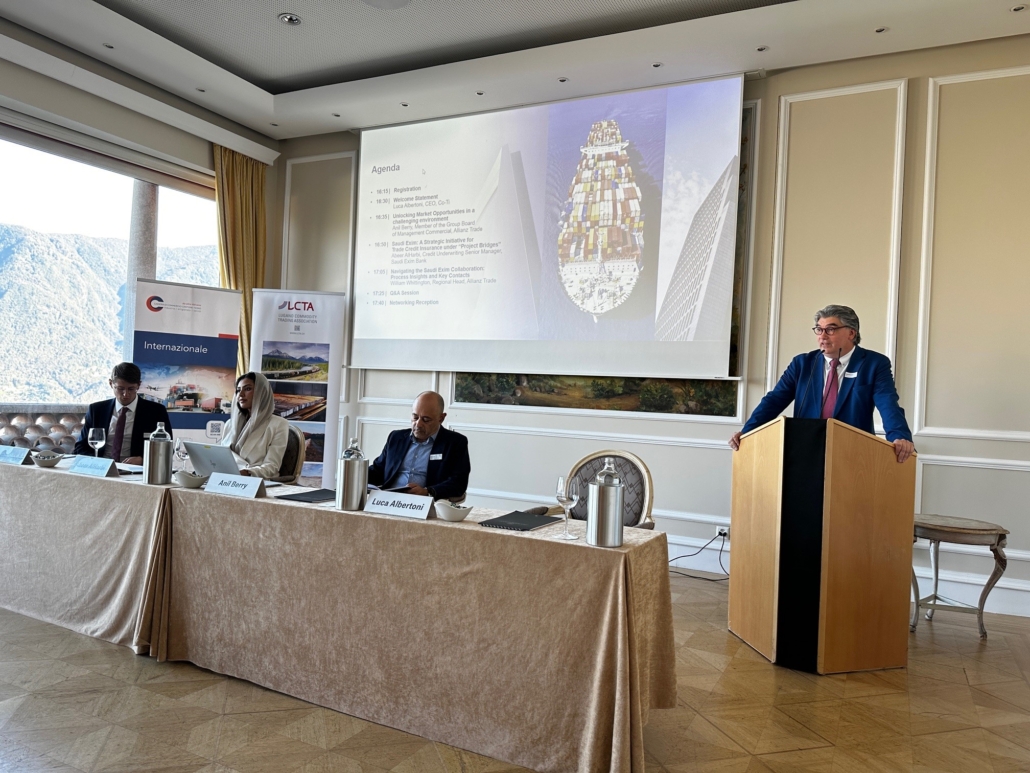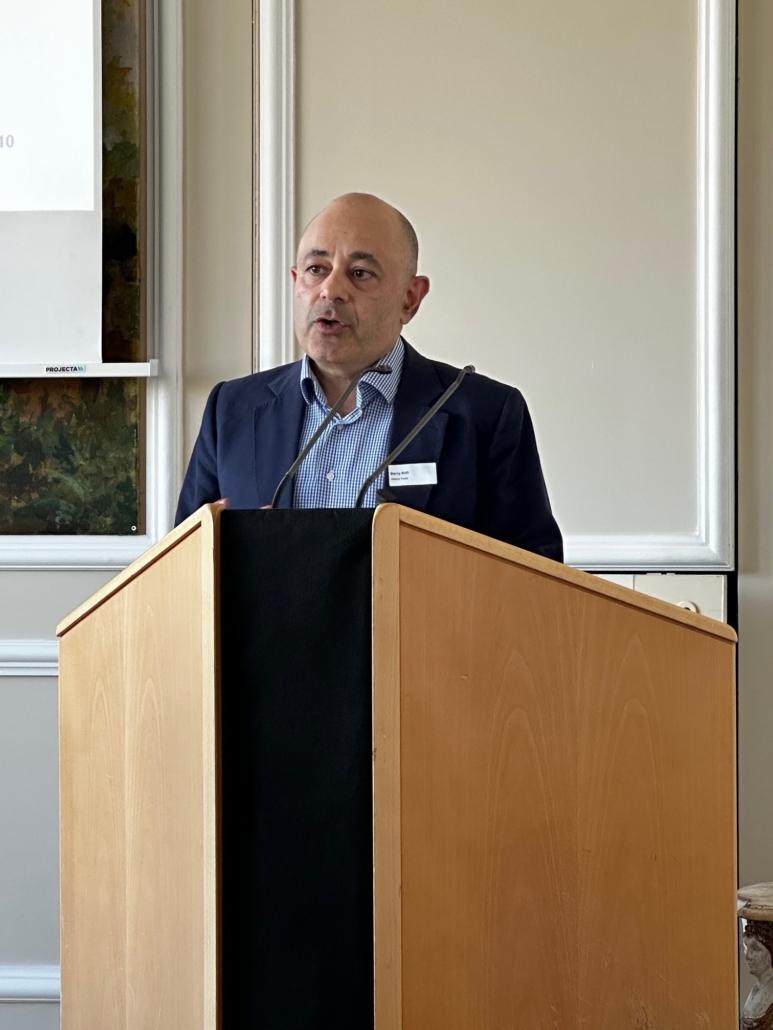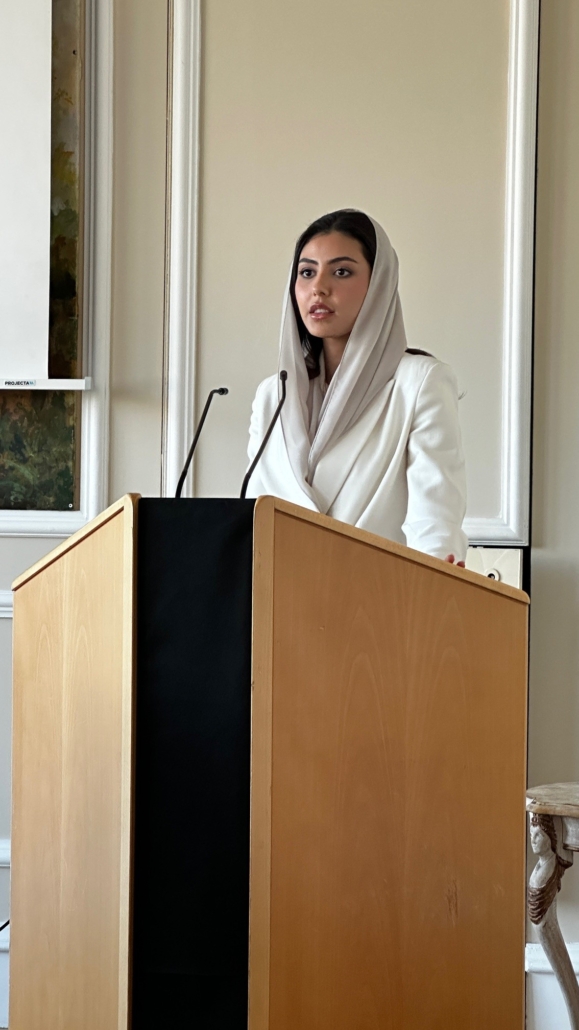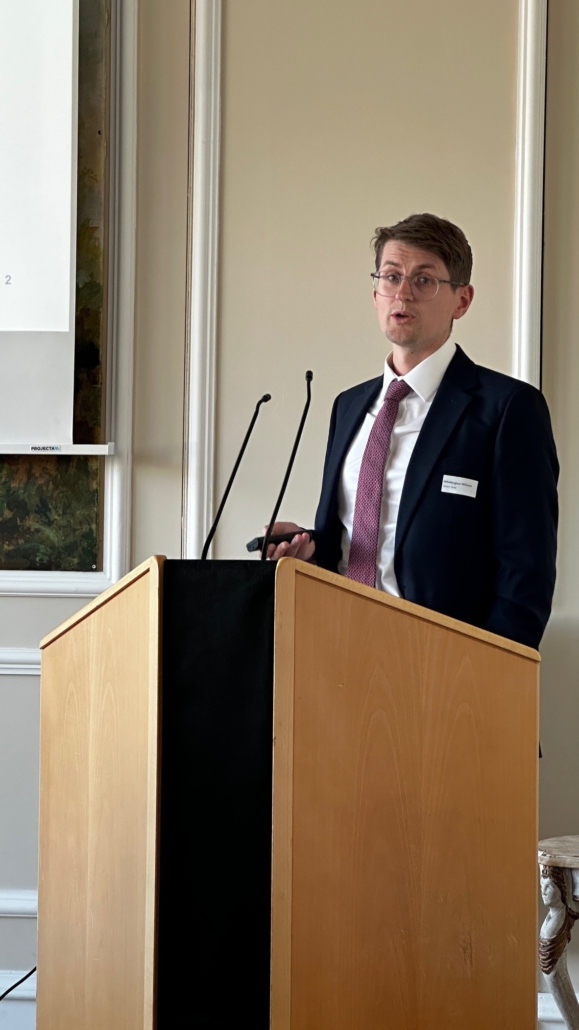Bridges to New Markets: The Saudi Opportunity

On October 2, 2025, the Chamber of Commerce and Industry of Ticino (Cc-Ti) and the Lugano Commodity Trading Association (LCTA) welcomed a distinguished audience of entrepreneurs, executives, and commodity traders to Villa Principe Leopoldo in Lugano for an exclusive gathering on Saudi Vision 2030, global trade, and risk management. The event, organized in partnership with Allianz Trade and featuring the participation of Saudi Exim Bank, came at a critical moment of unprecedented economic uncertainty — but also of historic opportunity.
Against the elegant backdrop of Villa Principe Leopoldo, overlooking Lake Lugano, the information session brought together practical insights and strategic vision, offering attendees concrete tools to navigate one of the world’s most dynamic emerging markets.
The event opened with Luca Albertoni, CEO of Cc-Ti, who emphasized the Chamber’s mission to help companies in Ticino and beyond “anticipate international trends, identify opportunities, and mitigate risks” when venturing abroad.
Uncertainty and Opportunity in Global Trade

The first keynote came from Anil Berry, Member of the Group Board of Management Commercial, Allianz Trade. He did not mince words: the global economy, he explained, is facing exceptionally high uncertainty. Insolvencies, which only a few years ago were at historic lows, have now surged back to alarming levels – and with unprecedented speed. Whereas companies once collapsed over three or four years, today that can happen in as little as three or four months.
Berry pointed to several structural factors: supply chain bottlenecks are delaying goods by an average of 30 days, while tariff tensions and financing challenges weigh heavily on businesses. Yet, amid the turbulence, opportunities remain.
Global growth for 2026 is projected at 2.5%, with the U.S. expected to lead long-term expansion and the Middle East — particularly Saudi Arabia — emerging as a strategic region for investment. Allianz Trade, he underlined, plays a pivotal role in this landscape, managing €1.3 trillion in risk at any given time and enabling nearly €6 trillion in trade flows annually.
Saudi Arabia’s Vision 2030 and the Role of Saudi Exim

Building on Berry’s global analysis, the spotlight then shifted to a specific opportunity: Saudi Arabia’s economic transformation. Abeer AlHarbi, Credit Underwriting Senior Manager at Saudi Exim Bank, introduced Saudi Eximas a Strategic Initiative for Trade Credit Insurance under ‘Project Bridges’. Founded in 2020 to “empower the Saudi non-oil economy in global markets”, the bank has already facilitated more than $24 billion in financing and insurance solutions for exports to over 150 countries.
The numbers tell a compelling story: with 63% of the population under 30 and GDP growing nearly 9% annually since 2016, Saudi Arabia is rapidly positioning itself as a global industrial hub. This demographic dividend, combined with massive infrastructure investments, creates exceptional demand for technology, machinery, and expertise — precisely the areas where Swiss companies excel.
AlHarbi highlighted ‘Project Bridges’ (“Jusoor” in Arabic), a landmark reinsurance collaboration with Allianz Trade.
Far from being a purely defensive tool, the initiative is designed to expand financing capacity for Saudi companies and their global counterparts, easing access for Swiss and European exporters entering the Saudi market. AlHarbi explained that the program plays a direct role in advancing Vision 2030 by:
- Driving industrial growth – supporting the import of equipment and advanced technologies to boost local productivity.
- Securing supply chains – guaranteeing reliable flows of raw materials and machinery from more than 70 countries.
- Unlocking export potential – enabling Saudi manufacturers to reach new international markets with confidence.
- Encouraging foreign investment – providing robust insurance solutions that reduce entry risks for overseas partners.
Making “Bridges” Work: Practical Guidance

The final presentation was delivered by William Whittington, Regional Head at Allianz Trade. His session peeled back the technical layers of ‘Bridges’ and made them accessible to the audience. He described a process designed to be as seamless as possible: exporters or their banks submit inquiries through Allianz Trade’s usual channels, after which Allianz and Saudi Exim conduct independent credit reviews and ESG/KYC screening. Once approved, clients benefit from non-cancellable limits and expanded insurance capacity – up to $100 million per Saudi buyer, with financing terms extending as long as seven years.
Whittington also shared a concrete case study that resonated with the audience: a commodity trader who, thanks to ‘Bridges’, secured seven times the insurance limit normally available for a Saudi transaction. This dramatic expansion of capacity transformed a cautious test transaction into a strategic partnership. The flexibility, he stressed, is not limited to large corporations — SMEs are equally eligible, with no minimum transaction size required.
A Cautious Optimism – and a Clear Path Forward
The discussions painted a nuanced picture. On one hand, the fragility of the global economy remains evident, with insolvencies rising, financing conditions tightening, and geopolitical crises adding further layers of complexity. On the other, innovative frameworks like the Allianz–Saudi Exim partnership are actively reshaping how companies approach trade in volatile markets.
As the event drew to a close, a sense of cautious optimism prevailed. For Swiss businesses looking outward, Saudi Arabia’s Vision 2030 and the instruments presented – from Allianz Trade’s global risk solutions to Saudi Exim’s financing and insurance tools – represent not just theoretical opportunities, but practical bridges to new markets.
The message was clear: in an era of uncertainty, the companies that will thrive are those that combine bold vision with careful risk management. The tools exist. The market is ready. The question for Ticino’s entrepreneurs is no longer whether to explore Saudi opportunities — but when to begin.

